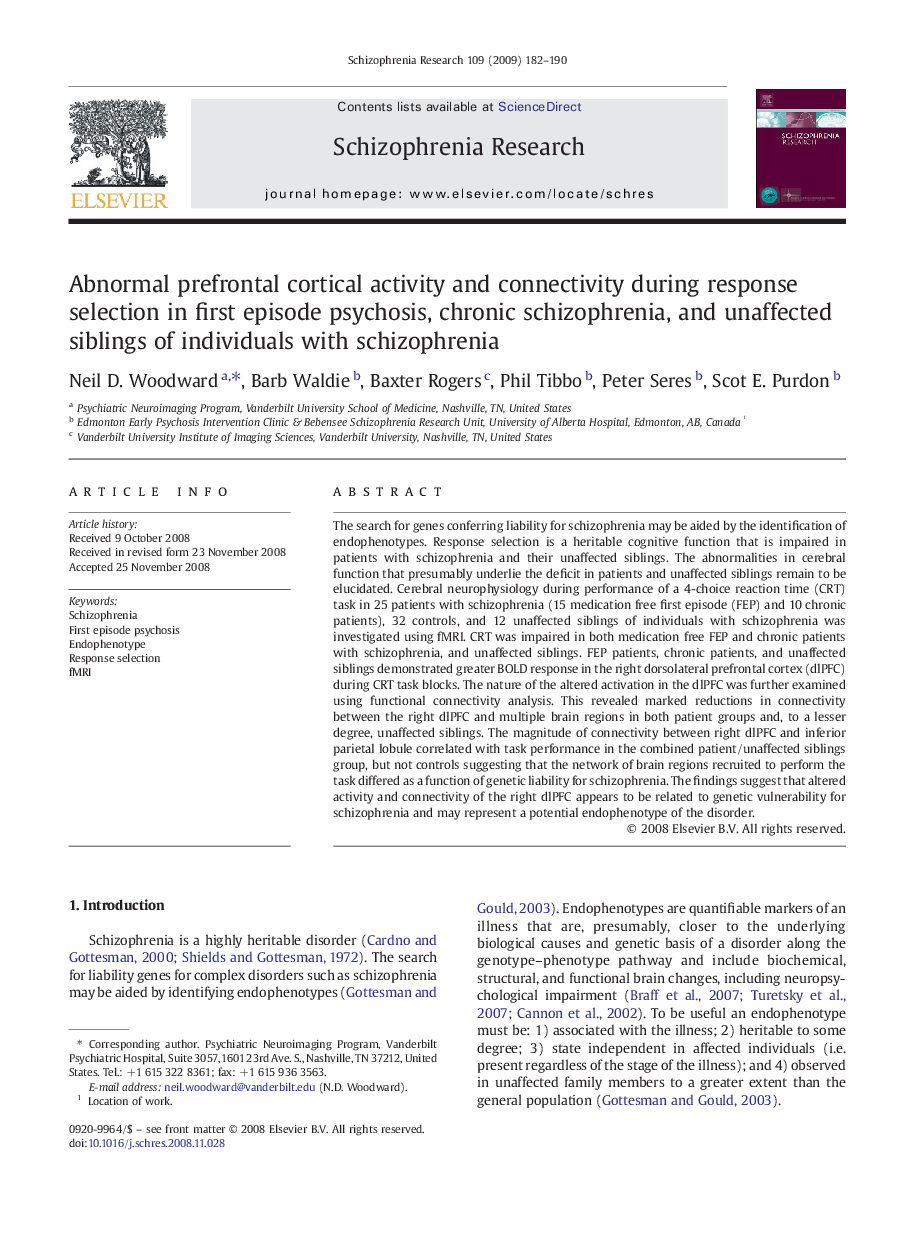| Article ID | Journal | Published Year | Pages | File Type |
|---|---|---|---|---|
| 339439 | Schizophrenia Research | 2009 | 9 Pages |
The search for genes conferring liability for schizophrenia may be aided by the identification of endophenotypes. Response selection is a heritable cognitive function that is impaired in patients with schizophrenia and their unaffected siblings. The abnormalities in cerebral function that presumably underlie the deficit in patients and unaffected siblings remain to be elucidated. Cerebral neurophysiology during performance of a 4-choice reaction time (CRT) task in 25 patients with schizophrenia (15 medication free first episode (FEP) and 10 chronic patients), 32 controls, and 12 unaffected siblings of individuals with schizophrenia was investigated using fMRI. CRT was impaired in both medication free FEP and chronic patients with schizophrenia, and unaffected siblings. FEP patients, chronic patients, and unaffected siblings demonstrated greater BOLD response in the right dorsolateral prefrontal cortex (dlPFC) during CRT task blocks. The nature of the altered activation in the dlPFC was further examined using functional connectivity analysis. This revealed marked reductions in connectivity between the right dlPFC and multiple brain regions in both patient groups and, to a lesser degree, unaffected siblings. The magnitude of connectivity between right dlPFC and inferior parietal lobule correlated with task performance in the combined patient/unaffected siblings group, but not controls suggesting that the network of brain regions recruited to perform the task differed as a function of genetic liability for schizophrenia. The findings suggest that altered activity and connectivity of the right dlPFC appears to be related to genetic vulnerability for schizophrenia and may represent a potential endophenotype of the disorder.
